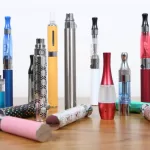The US Food and Drug Administration (FDA) has announced a landmark decision to remove endocrine-disrupting chemicals (EDCs), specifically per- and polyfluoroalkyl substances (PFAS), from food packaging. This move, issued on February 28, 2024, marks a significant milestone in safeguarding public health against harmful chemical exposures.
The FDA’s decision to eliminate PFAS from food packaging signifies a crucial step towards reducing dietary exposure to these chemicals, commonly found in fast-food wrappers, microwave popcorn bags, take-out paperboard containers, and pet food bags. According to the FDA, this action addresses a major source of PFAS exposure and aligns with the agency’s commitment to protecting consumer health.
In 2020, the FDA had initiated efforts to halt the sale of products containing PFAS used in food packaging for grease-proofing, securing commitments from manufacturers to discontinue such items. The recent announcement signifies the culmination of these voluntary commitments, underscoring the FDA’s dedication to upholding stringent safety standards in food packaging materials.
PFAS, often referred to as “forever chemicals,” belong to a class of thousands of chemicals widely utilized in consumer and industrial products. Studies have linked PFAS exposure to disruptions in hormonal function, including estrogen and testosterone levels, as well as potential impairments in thyroid function.
The FDA’s decision comes in the wake of a new report issued by the Endocrine Society, sounding the alarm on the human health risks posed by environmental EDCs, including PFAS. The report highlights the pervasive presence of EDCs in modern environments and their association with a spectrum of human diseases, ranging from reproductive disorders to cancer and metabolic conditions.
Lead author Andrea C. Gore, PhD, of the University of Texas at Austin, emphasized the urgent need for global policymakers to address the threat posed by EDCs to public health. The report underscores the critical importance of aligning regulatory and reimbursement processes to promote the development and access to safer, more sustainable products.
The report further emphasizes the need for education and awareness-raising among stakeholders to foster a safer and more sustainable environment, minimizing exposure to harmful chemicals. Policies such as the 2022 Plastics Treaty, adopted by 175 countries at the United Nations Environmental Assembly, represent significant strides towards global control of plastics and the elimination of EDC-related threats.
As the FDA takes decisive action to ban PFAS from food packaging, it sets a precedent for prioritizing public health and safety in regulatory decision-making. Moving forward, continued collaboration between regulatory agencies, policymakers, and advocacy organizations will be essential in mitigating the risks posed by EDCs and fostering a healthier, more resilient future for all.











